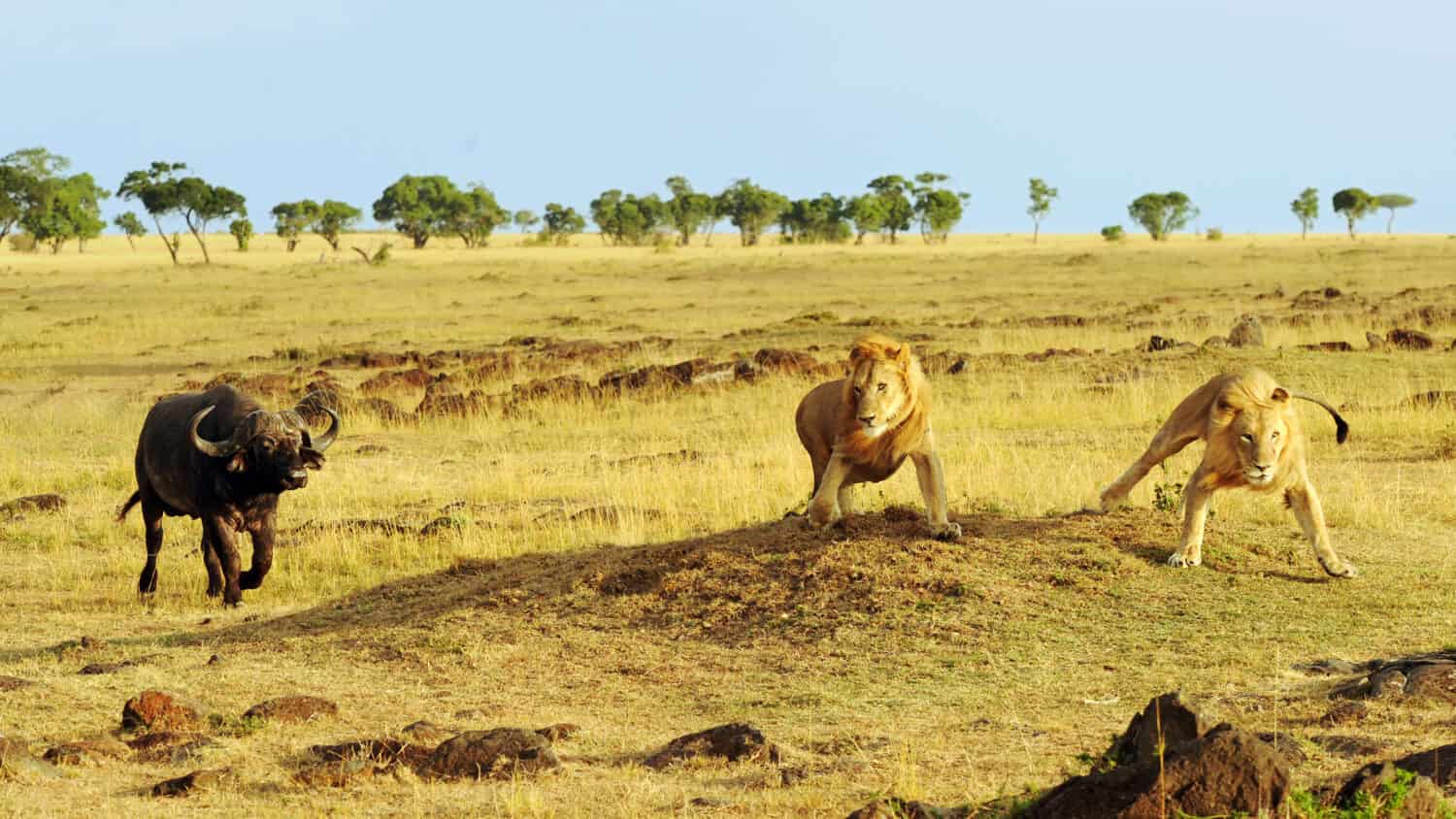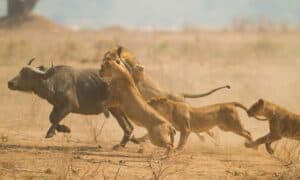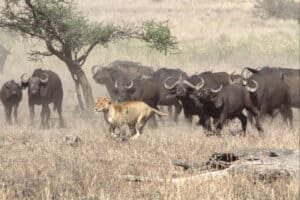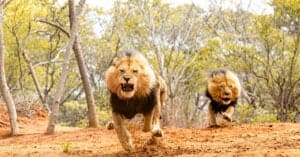Water buffalos are one of the largest bovine groups on the planet, consisting of a variety of species that span the globe. Both domesticated and wild species alike are massive in stature and full of courage. Nothing else is more evident in the video below, which shows a herd of water buffalo attacking a lion, going as far as to flip him in the air!
Watch the Crazy Scenario Here!
The clip begins by showing a large herd of water buffaloes surrounding a male lion who is all alone. One buffalo takes charge, hitting the lion with its tough horns. The lion attempts to attack back by clinging onto its head, but it is eventually thrown off.
Almost like a planned attack, the rest of the buffaloes begin taking hits of their own, rearing their horns in the air. With every hit, the buffaloes attempt to throw the lion into the air with their horns. After a few attempts, one makes a successful throw, tossing the lion a great distance.
The lion then tries to hide beneath a dense tree, but it is no use as the buffalo follow, still trying to take hits. After another few attacks on the lion are shown, another clip is shown of a group of lions coming to the aid of their comrade, who is sitting under a tree, badly injured!
Do Buffalo Normally Attack Lions?
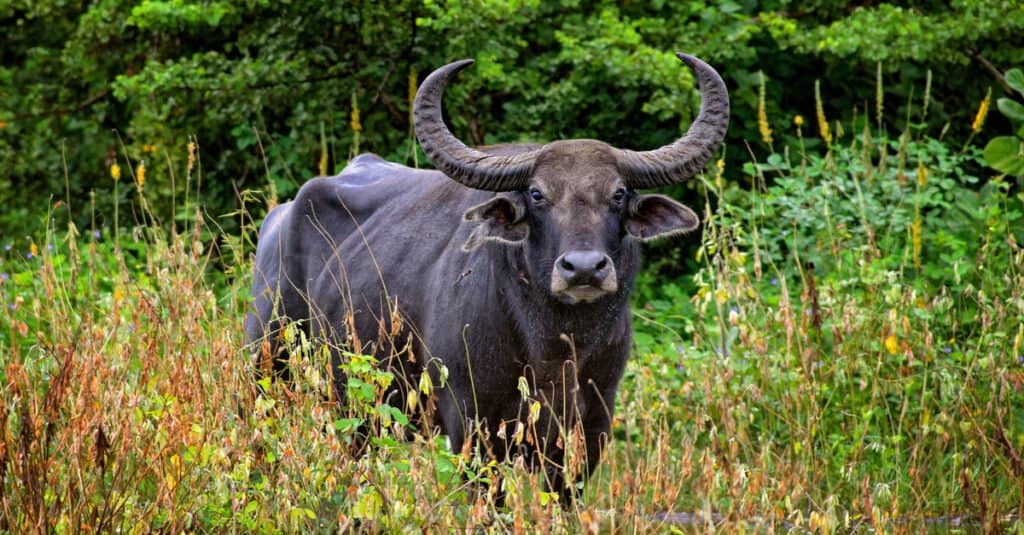
Water buffalo are mild-mannered bovines but will defend themselves if attacked.
©David Havel/Shutterstock.com
At the end of the day, most water buffaloes aren’t actively seeking out lions to attack. They are typically docile and spend the majority of their day foraging on grasses and other small plants.
On the contrary, lions are very aggressive and territorial animals who will hunt water buffaloes. Most of the time, this ends up in an unsuspecting buffalo becoming dinner for a hungry lion. In other cases, however, buffaloes are successful in defending against lion attacks.
Water buffaloes may attack lions out of the blue, depending on the situation. Buffalo attacks usually occur if the lion is within the vicinity of the buffalo. Additionally, the chances of a buffalo attacking a lion increase if there are multiple buffalo in the same area.
How Large Do Buffalos Get On Average?
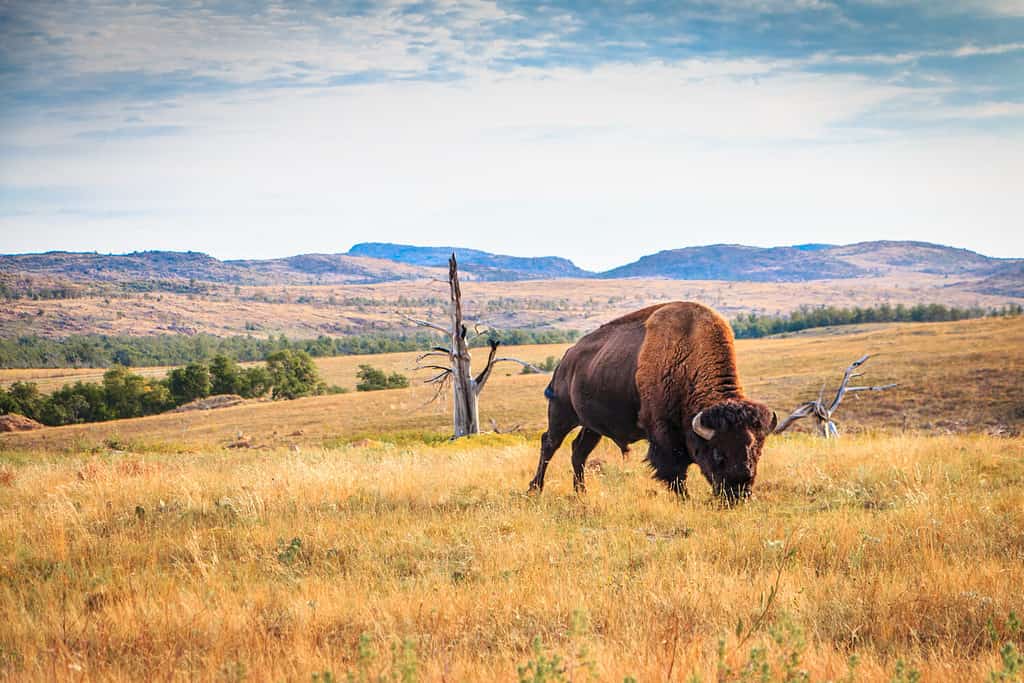
Male bison bulls are much larger than female bison cows.
©angie oxley/Shutterstock.com
Bison (bulls for males and cows for females) display pretty large size differences. Male Bulls can reach a weight of up to 2,000 pounds and stand at a staggering height of six feet, whereas cows weigh up to about 1,000 pounds and have a height ranging anywhere from four to five feet.
The largest mammal in North America is the American Bison. This massive animal has a weight range of 701 to 2,205 pounds.
Notably, the heaviest wild bull on record reached an amazing weight of 2,800 pounds. In captivity, however, an even more substantial bison set a record at 3,801 pounds.
How Often Do Lions Need to Eat?
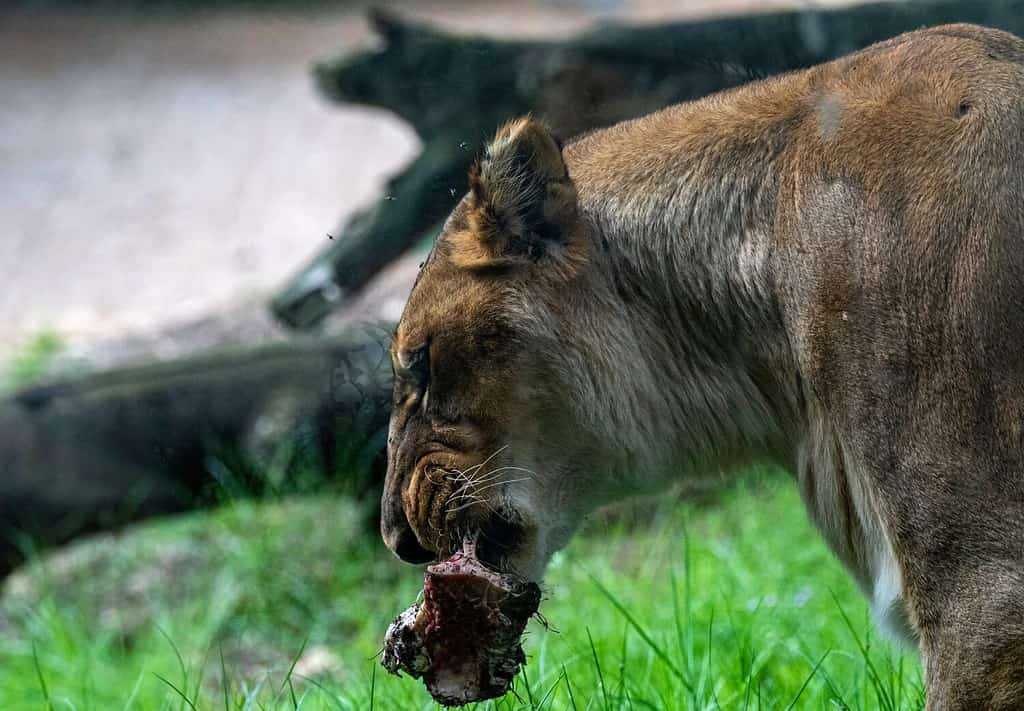
Lions are apex predators who can hunt just about any animal they see. Regardless, many lions hunt medium or large-sized animals to sustain their large appetite!
©Ishor gurung/Shutterstock.com
Being large animals with active metabolisms, lions require a substantial amount of food to sustain their powerful bodies. Since they eat mostly meat, their food supplies them with a lot of protein and calories, even in small amounts.
Depending on the gender, age, and size of the lion, they require somewhere between 4.5-7 kg of food a day on average. In other words, any lion can up around 15% of its body weight on average in a single day!
While lions don’t normally eat every day, they frequently meet this average by hunting a large type of prey every few days. Due to their need for large prey, lions have incredibly specialized teeth that are designed for latching onto and damaging prey.
Lions can go for multiple days or even up to a week without eating any food!
Thank you for reading! Have some feedback for us? Contact the AZ Animals editorial team.

